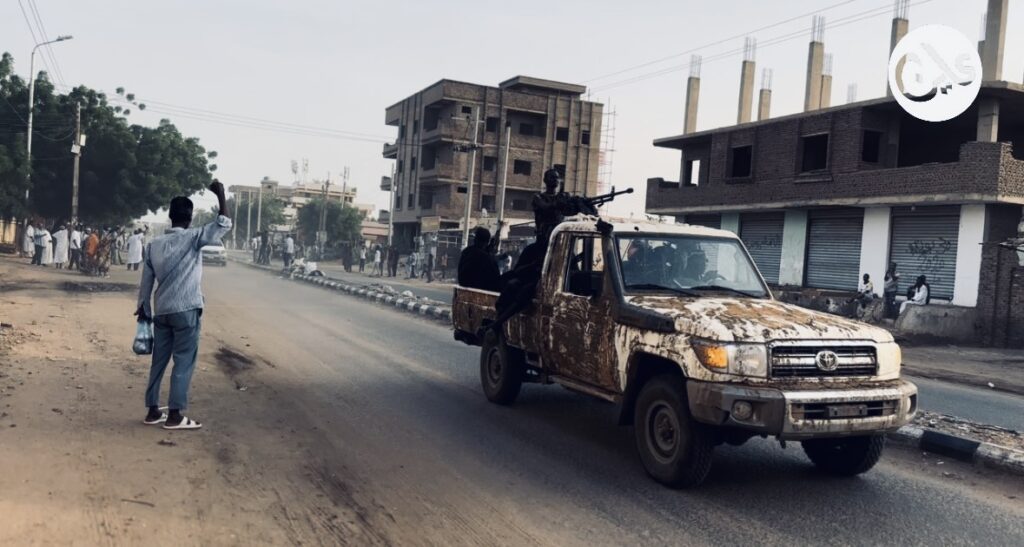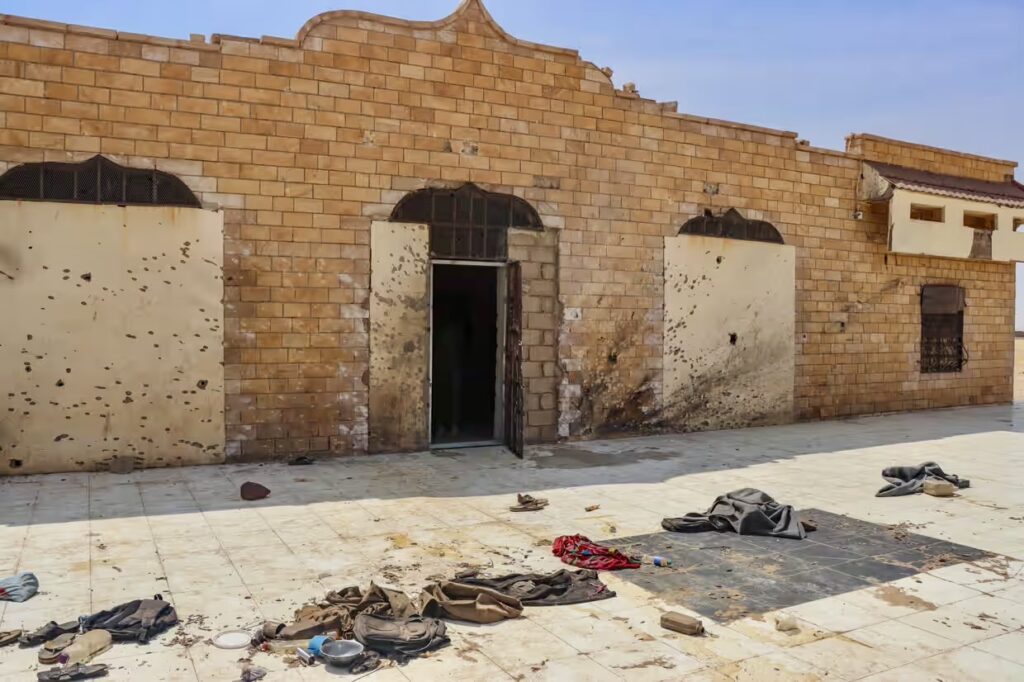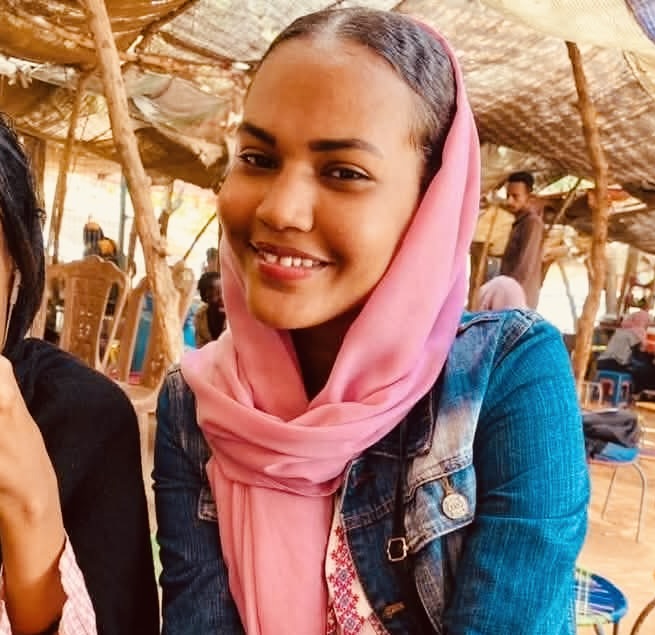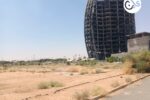Arbitrary arrests in the capital, criminalised for survival
1 May 2025
Since the beginning of January, security forces linked to the army arbitrarily arrested Duha Shuaib, a former third-year student from Neelain University. Originally from Tuti Island in the heart of Sudan’s capital, Khartoum, security forces arrested Duha, 21, at a shelter for the displaced in the Karrari area of Omdurman. Until today, her family has no clear understanding as to why she was detained or whether she will ever be released.
“We kept visiting her in the security cell, but they never allowed us to see her, nor did they let us understand anything,” her sister told Ayin. “They only keep telling us she is doing well.”
Sudan’s army have made significant advances across the capital since late March, retaking ground from their adversaries, the paramilitary Rapid Support Forces (RSF). While the RSF largely fled the area, the army started to arrest civilians, accusing them of being RSF collaborators, according to local advocates. The army is targeting civilians found in formerly RSF-controlled areas, the same sources said, particularly if they belong to the same ethnic group as those of the Rapid Support Forces.
According to a UN report in March, the army has set up seven detention facilities across Khartoum State, all of which were military bases, with the primary location reportedly being a military prison within the Karari Military Base in Omdurman. Additional detention facilities controlled by the army include another one in Omdurman, three in Bahri, and two in southern Khartoum.

Army detention centres
In one testimony collected by the UN, a released detainee spoke of being held incommunicado in a military camp in Omdurman along with roughly 100 others–nearly all ethnically profiled. The army arrested all the detainees, all from the Darfur and Kordofan regions, for being RSF-affiliated. The detainee witnessed nine deaths during his 13-day detention; often, soldiers forced the detainees to dig graves for the deceased near the facility.
According to Mohammed Salah, a lawyer with the Emergency Response Rooms, Duha and others accused of RSF ties are charged under articles 50 and 51 of the criminal code with “undermining the constitutional system” and “waging war against the state”, treasonable offences that could result in the death penalty.
But Duha has never lived in an RSF-controlled area or has any ethnic links to them. The 21-year-old and her family had left Tuti Island and fled to Ad-Damer in River Nile State a month before the RSF deployed troops on Tuti Island. After some time in Ad-Damer, her family decided to return to Khartoum after hearing that the army was relocating former Tuti residents to a shelter in Karrari, Omdurman, in an army-controlled area.

Two targets
“The army targets two communities—first, anyone they suspect of an RSF affiliation—no matter how flimsy the evidence may be,” says Ahmed*, another Emergency Response Room lawyer who provides pro bono services to the conflict-affected population in the capital. “The second group is us, members of the Emergency Response Rooms, and anyone suspected to be part of the revolution that opposes military rule.”
According to Shuaib’s lawyer, she has been held in deplorable conditions. Her first cell was occupied with three male youths accused of murder. Later, they transferred her to Al Thawra Al Hara Police Station, which delayed any trial for five months as they claimed to be examining her phone. In the end, they found nothing — except some pictures she took of her participation in the pro-democracy revolution.
“Duha is not the only person to suffer from this; there are many people facing the same fate,” Salah added. “This is a pretext for arbitrary arrests and unfair trials, which reflects a very dangerous approach to targeting civilians and vulnerable groups.” Despite the repeated postponements of her trial in April, Duha’s family continues to hold out hope for her release. Fellow students at Neelain University and other civil society groups are actively calling for her freedom. Her trial is scheduled for 4 May, her family told Ayin.

Survivors of RSF cells
While the army arrests civilians on the streets of the capital, others were finally released from RSF cells after the paramilitary force lost ground to the army this year. The RSF reportedly converted schools and police stations—even private homes—into detention centres, where civilians faced beatings, electrocution, and forced labour. Other cases involved the use of major prisons. In Soba Prison, the UN reported that daily death rates of inmates ranged from 4 to 10, and on some days it even reached up to 80, mostly due to malnutrition and treatable diseases. Since the outbreak of war on 15 April 2023 to March this year, the UN estimates the RSF had 39 detention centres in Khartoum and detained roughly 10,000 people, some of whom are yet to be found.



